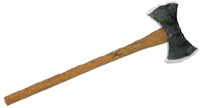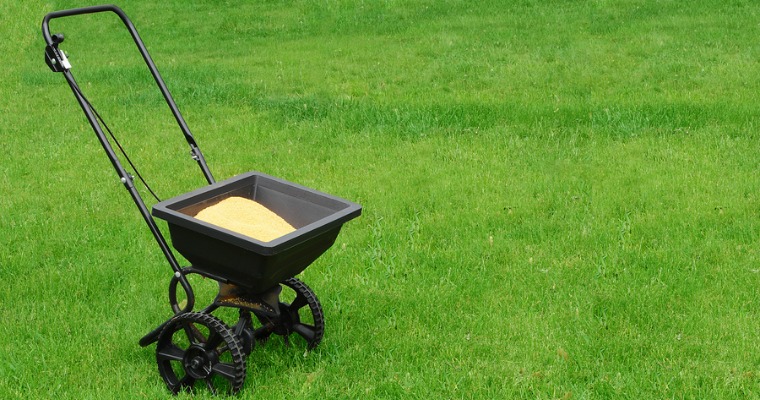Fertilizing your lawn on a regular basis – once or twice a year for most lawn grasses – will provide it with essential nutrients like nitrogen, phosphorus and potassium, all of which are needed for healthy grass.
It’s not uncommon, however, for fertilizer to have a negative impact on lawns. Certain types of fertilizer can dry out your lawn, a condition known as lawn burn.
You can still apply fertilizer to your lawn, but you should follow these tips to protect it against lawn burn.
#1) Avoid High-Nitrogen Fertilizers
Don’t use a fertilizer with a high ratio of nitrogen to phosphorus or potassium. Nearly all fertilizers are made of these three main ingredients.
Fertilizers with a high concentration of nitrogen, however, are more likely to cause lawn burn than their counterparts.
As the excess nitrogen soaks into the soil, it leaches moisture from the grass.
#2) Use Less Fertilizer
Another tip to protect against lawn burn is to use less fertilizer. A good rule of thumb is to use no more than 1 pound of nitrogen per 1,000 square feet.
Of course, you’ll have to factor the nitrogen content of your fertilizer to determine exactly how much you should use. If your fertilizer has 20% nitrogen, for example, you should generally use about 5 pounds per 1,000 square feet of grass.
#3) Close the Spreader Hopper When Refilling
When using a spreader hopper to fertilize your lawn, make sure it’s closed when you refill it.
You’ll probably need to stop every 10 to 15 minutes to refill the spreader with additional fertilizer.
If the spreader hopper is open, excess fertilizer will spill out. And if you don’t clean it up, it may dry out your lawn, eventually leading to lawn burn.
#4) Water Your Lawn Regularly
Of course, watering your lawn regularly can help protect it from lawn burn.
During the summer, most lawn grasses need about 1 to 2 inches of water per week. If your lawn gets less water during the summer, it will be dehydrated.
Therefore, fertilizing it will only dry it out even further.
#5) Don’t Fertilize If Diseased or Stressed
If your lawn is diseased or stressed, don’t fertilize it.
Stressed lawns are more likely to suffer from fertilizer burn than healthy, unstressed lawns.
Rather than fertilizing your lawn when it’s stressed, identify the underlying cause of the stress and resolve it. Once your lawn has emerged from its stressed state, you can then fertilize it without harming it.
The Woodsman Company offers tree planting, tree pruning and shrub trimming, tree removal and stump grinding as well as a tree wellness program.
If we can help with any of your tree care needs give us a call at 512-846-2535 or 512-940-0799 or


My sister can’t bring back her lawn to look green again, even after using fertilizer. You stated that stressed or diseased grass should not be fertilized until the grass is healthy. I believe my sister has burned her grass so it would be best to call a professional to advise her on how to maintain her grass healthy.
Hi Eli. Thanks for reading. I agree with you. There are actually quite a few things that can keep your grass from greening up the way you would like it. I would consult a local lawn care professional. They will have more knowledge about the soil conditions in your area.